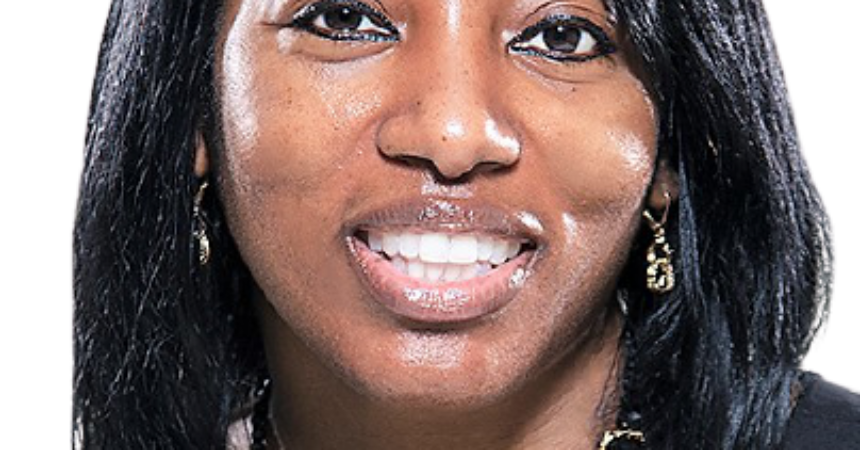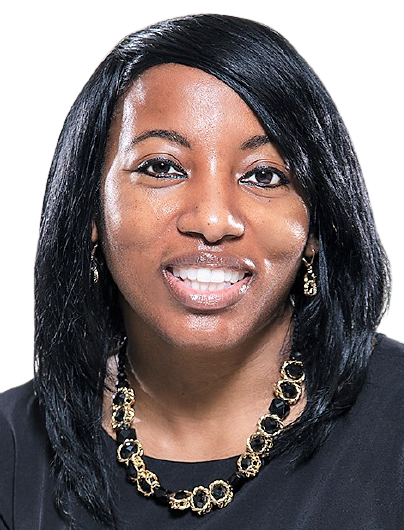
Business initiative looks to develop entrepreneurs among the incarcerated

By Cilicia Anderson
Outlook writer
In an effort to ease the re-entry process for formerly incarcerated citizens, Tallahassee Community College’s Workforce Development Division has partnered with the Florida Small Business Development Center at FAMU to provide entrepreneurial training at correctional facilities in Leon and surrounding counties.
Kim Moore, Vice President of Workforce Innovation at TCC, is shepherding the training program. The initiative is a first step to making incarcerated individuals self-sufficient after serving their sentences, Moore said.
“One thing that data supports is that whether someone lacks a high school diploma, GED or is a returning citizen, when they’re armed with education, they decrease the likelihood of ever returning back into incarceration,” Moore said. “That’s why this program is just absolutely important.”
After securing a contract with the Florida Department of Corrections and connecting with Keith Bowers, Regional Director of the FSBDC at FAMU, the two organizations worked together to create an impactful training program that would cover the foundation and framework of running a business.
The impact of the program could be far-reaching, Bowers said, adding that the training would expose incarcerated citizens to the employment opportunities either by working for someone else or themselves.
“Sometimes returning citizens have a hard time finding gainful employment because of their criminal record and we just want to make sure they understand that there is an option to work for someone else or for yourself,” Bowers said. “If they have the skill set and a business idea that has been well vetted and they understand the resources and the things they need to move forward in starting a business, we thought that would be a great alternative in the event that they could not find employment. Then, they could rely on their training and potentially start their own business.”
Individuals who participate in the program will be chosen by corrections officials at the participating detention facilities, Moore said. Eligible individuals include those who are currently in training and those who are six to 12 months from their release. The timeline will ensure that participants would have developed skills to function a real-world environment. Participants will have leeway to decide the training they to pursue.
Consultants guided the participants through the training, which starts with the basics of “how to start a business” before going through a marketing section. That is followed by accounting 101 and exploring business models before learning how to actually implement their business.
FSBDC at FAMU Consultant Pamela Johnson, who held training in a facility in Jefferson County, said the participants were extremely eager to learn and were serious about their assignments and participation.
“They were hungry, they were eager, they were very grateful and they loved the certificates of completion they received,” Johnson said. “When I handed them out, some of them came back and showed me that it was laminated. I mean they really took it to heart. They were very diligent with their assignments and just very grateful that the investment was made in them and their future.”
Many of the participants, whose names are being withheld for privacy reasons, wrote reviews for the training program as well as their FSBDC at FAMU consultant expressing the impact the training was on their goals and how it will help them transition back into their communities after they are released.
One participant wrote: “This class has helped me in many ways. I’ve always been business-minded (but) I just never took the steps to move forward. Mr. Bowers has brought enlightening information to my mind in the small business world. I believe with the proper planning, motivation, dedication, and discipline, I’m on my way to bigger and better things.
“Mr. Bowers has provided a lot of information that is useful. I am 31-years-old and I’m finishing up a 10-year sentence and I will reach my goals.”
Another inmate wrote that he found the classes informative.
“It held my attention all week, and I look forward to coming to class every day.” Harvey wrote. “I am glad I had the opportunity to attend this class, and given the chance, would do so again. It was awesome.”
Johnson said some participants exposed their vulnerability, pointing out they made mistakes and how they fixed them.
“They were very transparent about how they got to where they were, what they lost being there, and what their plan is to do things differently,” Johnson said. “I think that they were very appreciative and I learned from just listening to some of their business plans and I was just amazed at some of the businesses that they had already started and launched. Because they were coming from all over it was just very illuminating, their commitment to making things better for themselves and their families.”
Moore expressed optimism that the program will impact the small business communities in a positive way.
“There is such a demand for the skilled trades that employers will welcome the fact that they now have respected employees that they can consider hiring,” Moore said. “The fact is that these individuals will already be trained and they will already have their certifications so it puts them in a better place.
“One of the top things (with) any business whether small, medium, or large, the biggest thing is the people and the talent that they bring on. So, these individuals will have the opportunity to quickly clock in and find employers who will quickly see why they should hire them.”







